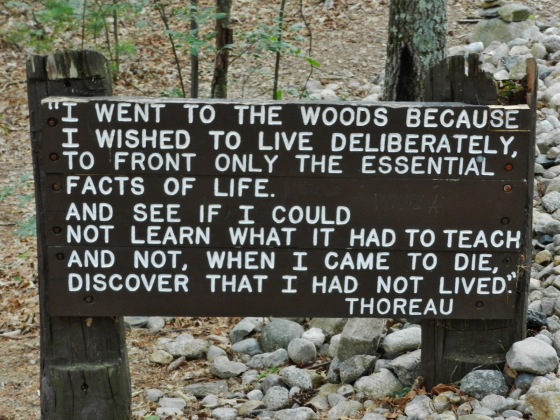I haven’t been back in the US for about a year. It doesn’t seem like a country at war, but we have been at war for 11 years, now. We are fighting terrorists, mujahedeen, who were previously freedom fighters against the Soviets. The Soviets were hostile occupiers, but the US is spreading freedom and democracy and killing “others” with machines that are growing in intelligence and deadliness (drones – definition). There is no sign of war here and no sign of deaths that are happening elsewhere. Peace: a wish, a protest, a religious statement, or political commentary. The flowers bloom, regardless.
I have just set foot on US soil after almost one year away. I have been up in Nova Scotia, Canada for the past two weeks. On the way there from New Zealand, I was briefly in Sydney, Australia on a layover. I had four country’s currencies in my pocket, which I thought was very cool, until I tried to pay for something and three of the currencies had the English queen’s likeness on them. Does that make me a global citizen or a bumbling, economic colonialist?
I was at the ALIA (Authentic Leadership In Action) conference, which I will discuss in more depth in another entry. Here, suffice it to say, I spoke with people from all over, mostly Canada, Quebec, the US, Barbados, Australia, and even New Zealand. The first thing that was strange is when I got on the Air Canada flight in Auckland. First I noticed one person speaking North American English, then another and another, suddenly, I was surrounded by people who spoke similarly to me, the Aussies sitting next to me were more the minority with their pronunciation. I didn’t realize how used to being different, in the New Zealand context, I have become. I had a weird experience in a Tim Horton’s yesterday, after already being in Canada for a couple of weeks, of having that feeling of needing to speak quietly so that everyone doesn’t know that I am American and then I realized that I didn’t need to change my way of talking, as there isn’t as much difference between Canadian English and US English, as there is between the US and NZ. Still, I would rather not stand out as obviously American in another culture. Sometimes in New Zealand, people think I am Canadian, I generally take this as a complement, based on the perception of the US in the world. So, I have learned to speak quietly, pronounce many words differently, and to make this kind of “um” noise and to say “eh” (or someone said I should spell it “aye,” but it sounds a lot like a Canadian, “eh,” eh?).
But then, there are those Canadiens from Quebec, with not just a different accent, but a different language. As New Zealand is bicultural (New Zealand European (pakeha) and Māori), so Canada is bilingual (French and English). In New Zealand, I worked hard to learn some Māori words and phrases. I learned some Albanian from my Kosovar friend. I have worked to understand and even say some words in different English accents. At the conference, I think one of the most beautiful words I heard was the Zimbabwean pronunciation of the word “here,” which sounds more like haeare, and it reminds me of my friend in New Zealand who grew up in South Africa and England, as he says haeare in a similar way.
One is at a distinct disadvantage being in a bicultural or bilingual country and not speaking the other language or understanding the other culture. There are complex dynamics around this. Sometimes it seems that those who speak “the other” language expect you to learn their language, but there is variability in whether or not someone teaches you their language. I don’t understand the Anglophone/Franocophone dynamics in Canada enough to comment. Māori culture in New Zealand is somewhat closed, it is more collectivist and tribal in orientation, which tends to have stronger ingroup/outgroup distinctions. There is also both a dual expectation that you are sensitive to and informed about their culture, but there are barriers to learning it as it is something of their own that is not easily shared. As an outsider bumbling in, there can be a feeling of discomfort, ignorance, being disliked (perhaps for one’s group affiliation – rather than one’s individual self), with the accompanying projection that the other is proud, arrogant, disdainful, angry, or perhaps playful, or maybe just seeing what a newcomer knows. What is behind this interaction, what motivates someone to speak a language to you that they know you do not know? In a bilingual country, a visitor could reasonably be expected to learn a few words in the host language. I admit it bothered me when Americans would use American currency in Canada (which I also admit, I did a couple of times near the end when I ran out of Canadian currency), why not exchange money? So why not learn some French, I ask myself. Well, I did embarrassingly learn “come see come saw” which means something like “I am so so,” (Ok, I know it isn’t spelled that way, but I am not sure how it is spelled, just how it sounds). I should learn some French, at least a few words out of courtesy.
I am listening to Stereolab right now, mostly English, but some French songs, although I have listened to this band for years, I don’t know what the words are to the French language songs. I like Jovanotti and I have looked up the English translation of some of those songs sung in Italian. Sigur Rós, I have looked up the translated lyrics on a couple of songs from Icelandic to English.
It was easier for me to learn to speak a few phrases of Albanian in New Zealand than Māori in New Zealand, why is that? I developed a relationship over some time with someone from Kosovo at the bus stop every morning, and it just seemed natural to want to learn a few phrases. Most of my learning of Māori has been from reading books and learning certain terms.
Language is a touchy subject, a difficult subject, it allows for connection, it can create clarity or confusion, it also can be used for disconnection. I know that it took me about a year, maybe a year and a half of having to activate a little more of my brain to translate accents in New Zealand – the place I noticed this the most was in jokes, I would often be about 10 seconds behind the joke before I would get it. Being in a different culture is an adventure and it also entails a degree of isolation and difference. I have written earlier on this theme shortly after arriving in New Zealand, particularly the dilemma of having a tendency to feel like an outsider and gravitate to the periphery in one’s own culture and then moving to another culture and being perpetually an outsider. I have met Americans who have been in New Zealand for years, and even though they pronounce some words like a Kiwi, they don’t speak with a Kiwi accent, only those who come at a young age seem to be able to do that. There is something akin to aural butter in hearing one’s own language and dialect spoken, of speaking to someone who has a familiar rhythm and tempo in their speech, it is kind of like the meal I had for lunch today – it was really good, partly because it was expected and predictable, the variations maintained the essence of the food, whereas in another culture the name is retained, but something about the essence just doesn’t feel like the food you are used to. And yet, for many people, there is a desire for newness, difference, a change of pace, a new perspective – but all things are in a balance, it would be good if I could explain that, but I cannot, other than to say that I have felt at times a craving for sameness, security, the expected in reaction to a temporary state of being overwhelmed by otherness.
So, what do I say, “I am culturally insensitive because I am an American, and that is in fact our culture and other cultures should be sensitive to that?” I don’t think that will fly. I will need to learn at least some conversational French before returning to Canada. But for now, merde (second favourite French word), I must work on my idée fixee (favourite French phrase), and I bid you adieu. Mon Dieu, I almost forgot my third favourite phrase! I also like the French pronunciation of idiot, which is probably fortunate.





